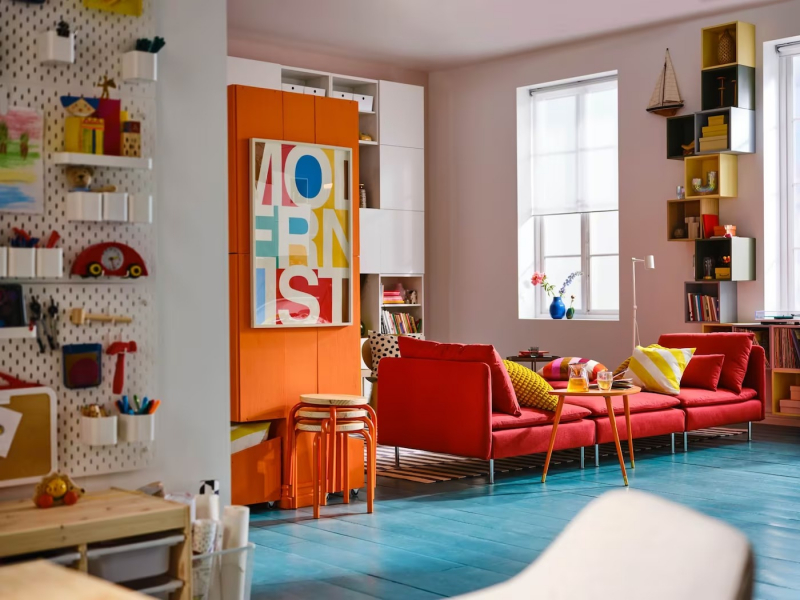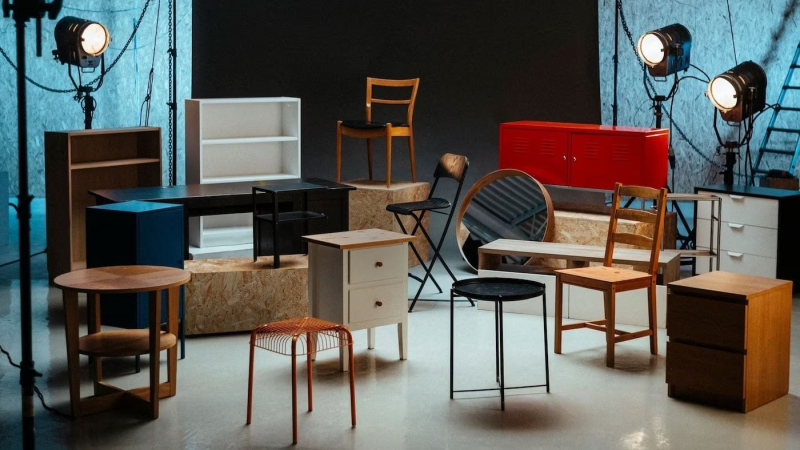IKEA

IKEA's establishment in 1943 by Ingvar Kamprad in Älmhult, Sweden, was inspired by his vision of addressing the need for well-designed, functional, and affordable home furnishings. Over the years, IKEA has dynamically responded to various design trends, market demands, and cultural shifts, ensuring it remains a leader in the furniture industry. Its unique flat-pack design concept, introduced in the 1950s, was a pivotal milestone, reducing shipping costs and enabling easy home assembly for consumers.
IKEA embodies the essence of "Democratic Design," a philosophy built on five pillars: form, function, sustainability, quality, and affordability. Melding Swedish minimalism with practicality, their designs ensure products seamlessly enhance everyday life. A staunch advocate for sustainability, IKEA commits to renewable and recycled materials, significantly reducing their environmental footprint. Their products, while bridging the gap between timeless appeal and contemporary trends, are created to be accessible without compromising quality. This harmonious blend of design excellence and affordability has made IKEA a top choice for eco-aware and value-driven consumers worldwide.
Among the myriad of products IKEA offers, certain collections have stood out notably. The BILLY bookcase, for instance, is a hallmark of IKEA's functional yet stylish design approach, having found its way into homes worldwide. Similarly, the KLIPPAN sofa, renowned for its affordability and customizable design, has been a consistent favorite. The inspirations for these collections often emerge from practical consumer needs, merged with the simplicity and functionality of Scandinavian design. With a pricing strategy that emphasizes affordability, most consumers view IKEA as a mid-range brand, delivering great value for money.
- Founded: 1943
- Headquarters: Älmhult, Sweden
- Official website: https://www.ikea.com











